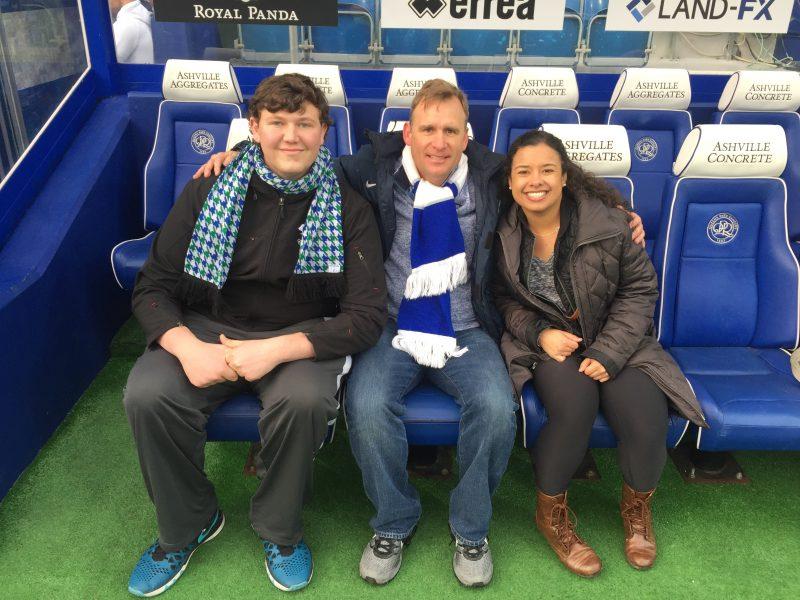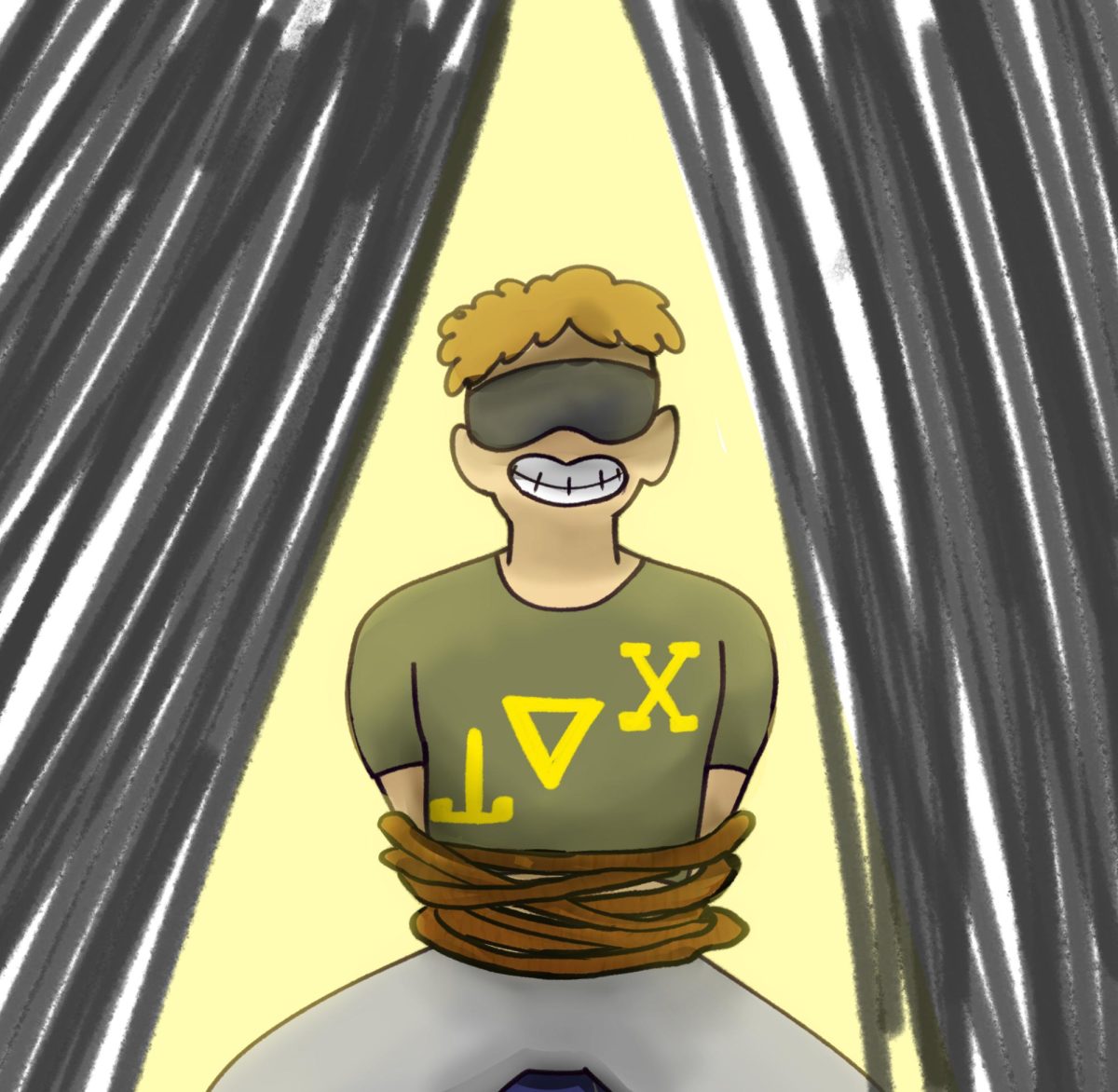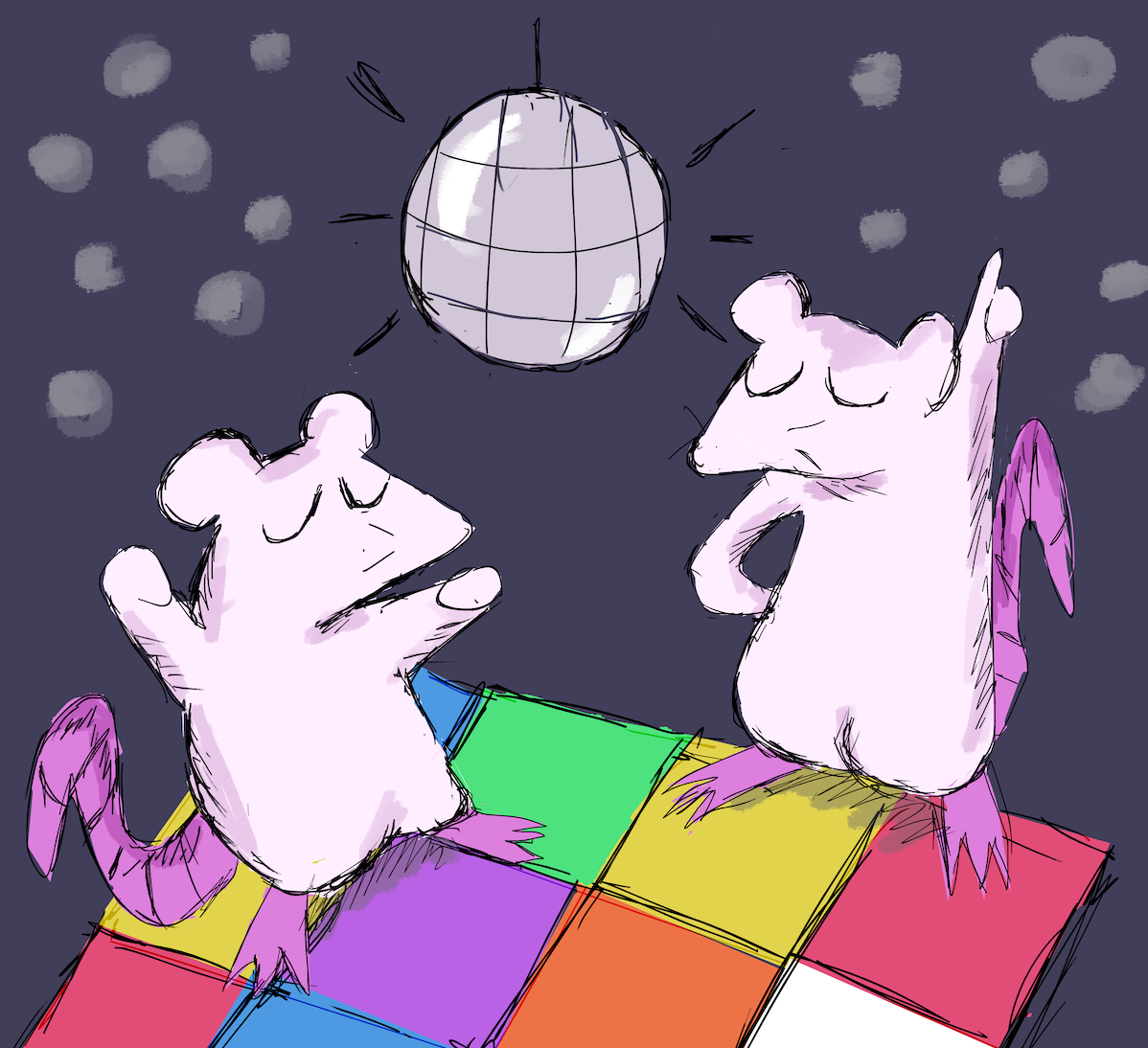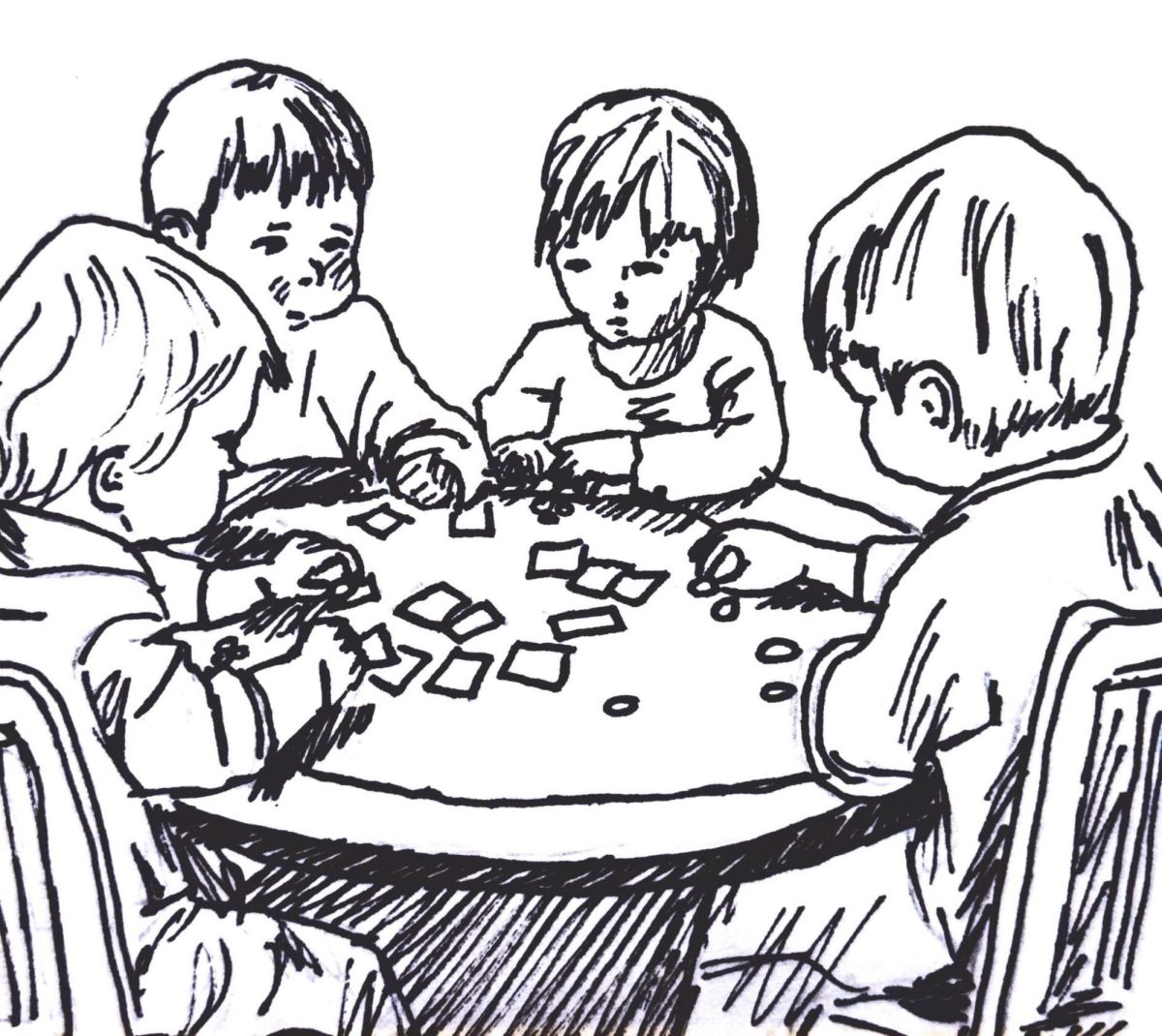Over the winter break I spent two weeks in London, during which I attended three football matches and a play in Piccadilly Circus; I also took Blue Badge Tours of Westminster Abbey, Queen Elizabeth Olympic Park and Hampton Court Palace. My time in London, however, was anything but a vacation. While it was an amazing experience, the reason I was in London to was to teach the first two weeks of a Trinity University sport management class.
That course is “Tom Brown’s School Days: A comparative analysis of British and American sport models,” aka Sport in London, which began Dec. 26 and ends on March 28. The time in London was a full sprint. You won’t believe how much we packed in during the two weeks, so I’ll spare you the details, but that fact that we walked nearly 115 miles in 13 days gives you some idea. Because of the immersive nature of our time in London, there’s no doubt the time back on campus — to reflect and do academic reading — is vitally important to the students’ learning.
While I’ve previously taught this class, there was something enchanting about the festive period in one of the world’s great cities. The true magic, however, comes in seeing the glint in our students’ eyes as they saw St. Paul’s Cathedral for the first time or their enthusiasm as they walked into a stadium for their first British football game! In a previous Trinitonian article, Hailey Wilson highlighted what our students learned, as such, this articles focus is on what I learned.
In no particular order I offer my big takeaways from my two weeks in London:
- Can I Trust You?
- Every Moment Matters
- The FA Cup is the Best Sports Contest in the World
- There’s a Difference Between History and Heritage
Can I Trust You?
I have the good fortune to team-teach Sport in London with men’s soccer head coach Paul McGinlay. He’s been at Trinity for 27 years and is wildly successful by any metric you choose, e.g. wins, team GPA, NCAA postgraduate scholarships. I believe the positive results are based on his team development philosophy. All team members must: (1) Do What’s Right, (2) Do the Best You Can and (3) Show People You Care. I was blown away the first time he shared this philosophy; and it is the cornerstone for Sport in London. In the class, our goal is to develop a team, not simply provide students with a transformational experience.
Affirmative answers to these three questions are key to the team development process: (1) Can I trust you? (2) Are you committed to the team? (3) Do you care about us? If students do what’s right, do the best they can and show people they care, the team will be successful.
Every Moment Matters
During the closing dinner in London, Shelby DeVore said her biggest lesson from the two weeks was that “every moment matters.” While all of our students shared import take-homes, Shelby’s comment really struck me. As McGinlay says, the most important things in life can be found “in the books you read and the people you meet.”
Something poetic occurs at the intersection of McGinlay and DeVore’s comments. Pay attention to what you read, connect deeply with every person you meet and know that every moment matters. Whether at work, in class or abroad, this is a great worldview.
The FA Cup is the Best Sports Contest in the World
Although my favorite football team lost in round three of the Football Association Challenge Cup (FA Cup), at least I saw the match live. I was gutted by the result, but the fact that a League One team defeated a Championship League team (on the road!) was brilliant.
One day later, Nottingham Forest defeated Arsenal — again on the road. And, in the game of the day, another League One team, Shrewsbury Town, drew with West Ham — at Shrewsbury! A Premier League team playing a League One team on the road? That simply doesn’t happen in America, but how great would it be if the Montgomery Biscuits played the Texas Rangers in Montgomery — and won!
There’s a Difference Between History and Heritage
The final lesson was courtesy of British historian Simon Inglis. In preparation for our class, students read selections from “Played in London” and we were treated to an amazing guest lecture on our second full day in London. While Inglis talked about the Roman era London Amphitheatre, Uppies and Downies and the historical development of the Oxford versus Cambridge rowing contest, the most significant moment in his lecture came when he detailed the difference between history and heritage.
History is the story of what happened: the facts. (I’ll add: as they are remembered or told by the victors). Heritage is what is left that is important to us. So — what is the History of Sport in London II? Ask Coach, me or one of the students and we can provide detailed day-by-day descriptions, which will give you deep sense of our history.
The heritage? Find one of us in 25 years. We were changed. We were impacted. But, what’s left of the history won’t be known for quite some time. My hope is that during our next eight weeks together, the class will develop a sense of its heritage.
I can’t wait for our class reunion in 2028! It’ll be unbelievable!






